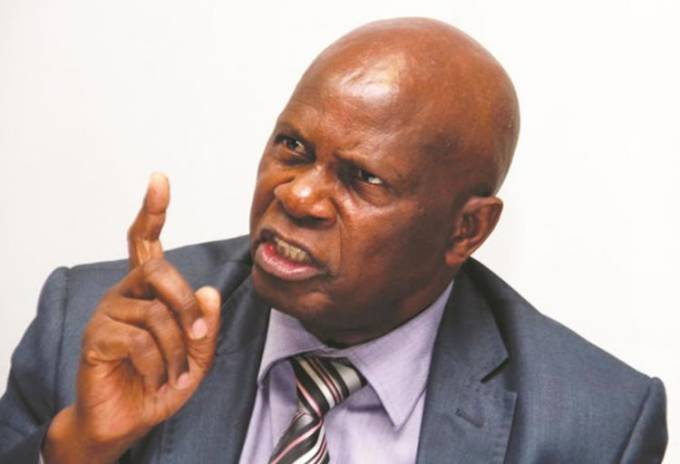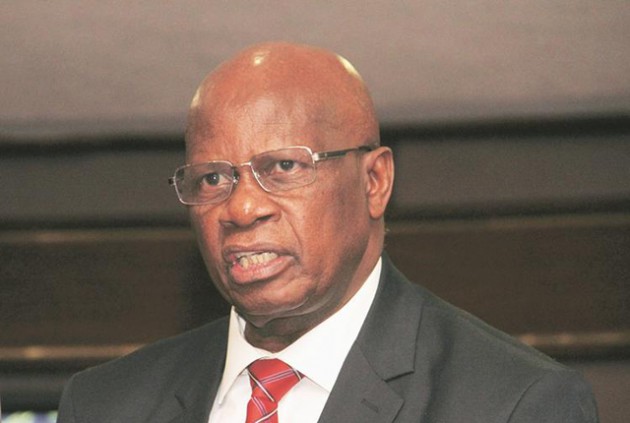MPs must adopt 2017 gender responsive budget


Minister Chinamasa
Pamela Mhlanga :Correspondent
It is that time when our Members of Parliament are debating the 2017 National Budget with a view to adopting it. This is a critical stage of the budget cycle, since it reinforces the priorities that we as a nation have decided deserve to benefit from the national cake.
What we now know is that we have to budget with the anticipated impact of our decisions on ordinary citizens in mind, hence the need to ensure that it is pro poor to address the needs of vulnerable and marginalised groups.
What we don’t keep an eye on is the differential impact the budget can have on men and women; one size does not fit all.
Men and women have different needs and priorities, and, very importantly, they do not access opportunities in the same way due to their status and position in society.
There is enough evidence showing that women lag behind in almost every area of life in terms of rights, access to assets and resources, and ability to influence decisions at the highest level.
The budget must thus be crafted in such a way that this gender gap is closed, with a particular emphasis on empowering women to play their rightful role in development.
In his budget statement presented on December 8, 2016 Minister of Finance and Economic Development, Patrick Chinamasa, pointed out the importance of investing in the social sectors (health and education), and the need to unlock the potential of sectors such as small, micro and medium enterprise (SME) that can play a critical role in economic recovery efforts. What was also significant was the emphasis by the Honourable minister on the need to invest in poverty reduction strategies outlined in the Interim Poverty Reduction Strategy Paper (IPRSP, 2016–2018).
All these aspects have a gender dimension due to the different way women, men, boys and girls experience life in these sectors.
The IPRSP clearly points out that women are the poorest of the poor in Zimbabwe.
It makes sense therefore to target national resources to empower women and eliminate their poverty; this way they become more productive in the economy and contribute to the development of the country.
MPs must only approve a budget that focuses on this.
This also aligns with the principles of public finance management as outlined in Chapter 17 Part 1 of the Constitution which, in S298 (b) (iii) provides that “ . . . special provision must be made for marginalised groups and areas”.
Available data shows that women dominate the informal economy.
According to the Finscope Survey (2012) there are 5,7 million people participating in the SME sector, which dominates the informal economy as approximately 85 percent of the businesses in this sector are unregistered.
Fifty-three percent of women are individual entrepreneurs and 54 percent are business owners with employees.
However, approximately 40 percent of the business owners in this sector earn less than $200 a month and 11 percent do not earn an income at all.
Given these statistics it is urgent that resources go towards providing incentives for business growth in this sector, particularly for women businesses.
A majority of these business owners are also unbanked, so financial inclusion should be top on the agenda.
It is striking there that the Ministry of SME and Cooperative Development has been allocated less than 1 percent of the total budget.
How is the agenda for unlocking the potential of the sector and promoting women empowerment going to be achieved with this amount?
MPs must ensure that this budget is substantially increased otherwise gender equity will not be achieved.
The Gender Policy (2013), Zim-Asset (2013) and the Constitution all make it imperative for government to allocate resources and provide opportunities to promote gender equality and women empowerment.
The continued underfunding of the Ministry of Women Affairs, Gender and Community Development is therefore disturbing and a hindrance to achieving the agenda set by these gender and development frameworks.
For the past five years, for example, the ministry has been allocated less that 1 percent of the total budget.
In 2017 the allocation stands at 0,19 percent of the total budget. Whilst government must be applauded for allocating $10 million seed funding towards the Women Micro Finance Bank in 2017, women empowerment is a much broader agenda than financial inclusion.
It is also about investing in community initiatives designed to increase women’s productivity under the portfolio of this ministry, as well as addressing issues such as ending child marriages and violence against women.
Very limited funds have been allocated towards these interventions. MPs must ensure that the Ministry of Gender budget is increased to at least 5 percent of the total budget. Further, the challenge of lack of disbursement of already meagre resources must be urgently addressed.
The ministry has been receiving only about 50 percent of the allocated funds on an annual basis. MPs must thus take their gender mandate seriously, and only approve a budget that is likely to make a positive impact in closing gender gaps and promoting women empowerment.
Pamela Mhlanga is the executive director, Zimbabwe Women’s Resource Centre & Network (ZWRCN)








Comments